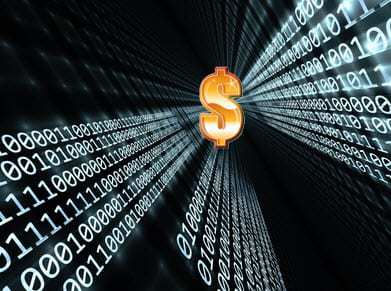When was the last time you paid for anything with a check?
For that matter, when was the last time you paid for anything with cash? Today debit and credit cards are accepted almost everywhere. Even places that have been famous for only accepting physical currency (like Laundromats) now use a card based payment system. Even vending machines are starting to accept cards now.
So what does that mean for physical currency? Is it really on its way out or does it just feel that way?
Let’s start with what we know. We know that stores went from paper based currency (the gift certificate) to card based currency (the gift card) more than a decade ago. Most employers now offer direct deposit instead of issuing paper checks. Even check cashing places are issuing cards instead of cash money now. According to an article in the Huffington Post, as of March 2013, the government is going to stop issuing paper checks for social security payments, disability, etc.
It certainly looks like paperless, point-based currency is where we are heading. Is that a good thing or a bad thing?
Switching to a point based and paperless currency system is cheaper for the government. It costs millions (if not billions) of taxpayer dollars to mint coins and print cash.
Cash is unreliable and harder to track. For example, if you drop a five dollar bill on the ground and don’t know it, you’re out five bucks. You can’t simply take a serial number to a bank and have them print you new money while taking the old stuff out of the system.
At the same time, though—with currency being nothing more than bytes of data stored electronically, it puts everybody at risk. If something were to happen and the system went down there would be nothing to prove how much money a person did or did not have in her account. It’s a doomsday prediction but with the Chinese hackery that’s been happening has the potential to become a reality.
One of the biggest fears that people have about going to a solely credit based system is the potential for abuse from creditors and banks. Think about the fees you have to pay when you use an out of network ATM. Right now having physically based currency gives people the option of not using a bank at all, which plays a large role in keeping banks from grossly overstepping their bounds. For example, the zero interest credit card is still a great option for people who want to build their credit without being taken advantage of by their creditors. When everything is card and credit based will these protections and offers still exist?
There are a lot of things that need to be done before the country can make the definitive leap toward a paperless currency system. In the meantime, though, with so many different industries taking steps in that direction, it’s important to understand what a credit based system would mean for you. You can start by learning about which are the best personal credit cards to use.
Don’t let yourself get freaked out by this just yet. Cash hasn’t been and probably won’t be completely phased out for quite some time. Still, all indicators seem to be pointing toward a paperless future.
